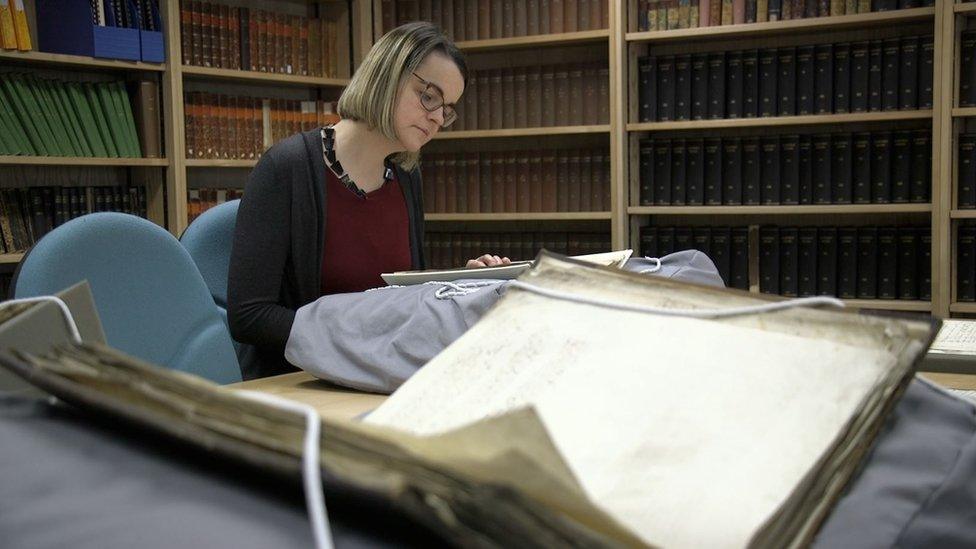Yorkshire Dales: Voices from 70 years ago in dialect heritage project
- Published
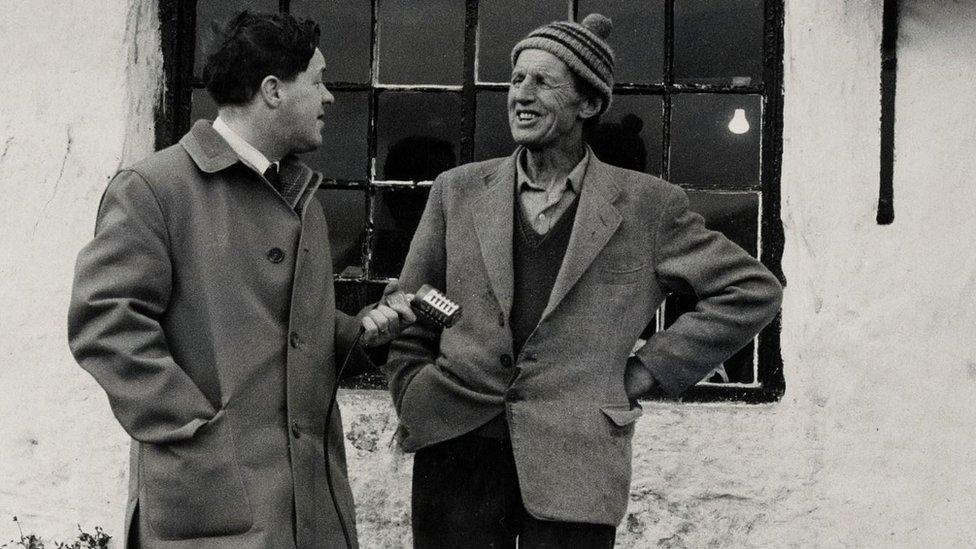
Kevin Frea from the Yorkshire Dales National Park Authority, said people were connecting with their roots through dialect gathered by University of Leeds researchers in the 1950s and 1960s
Recorded interviews containing words like "tupe" and "yow" have been used to celebrate the Yorkshire Dales dialect.
The rare audio was gathered by University of Leeds researchers in the 1950s and 1960s.
The interviews can be heard at the Dales Countryside Museum in Hawes as part of an exhibition called In Your Words.
Kevin Frea from the Yorkshire Dales National Park Authority said language had changed over the last 70 years.
Mr Frea, said: "The 50s and 60s were a high point for research on life in the Dales, that's when the last big agricultural transition took place. Tractors replaced horses and much else changed - including the way people spoke. "
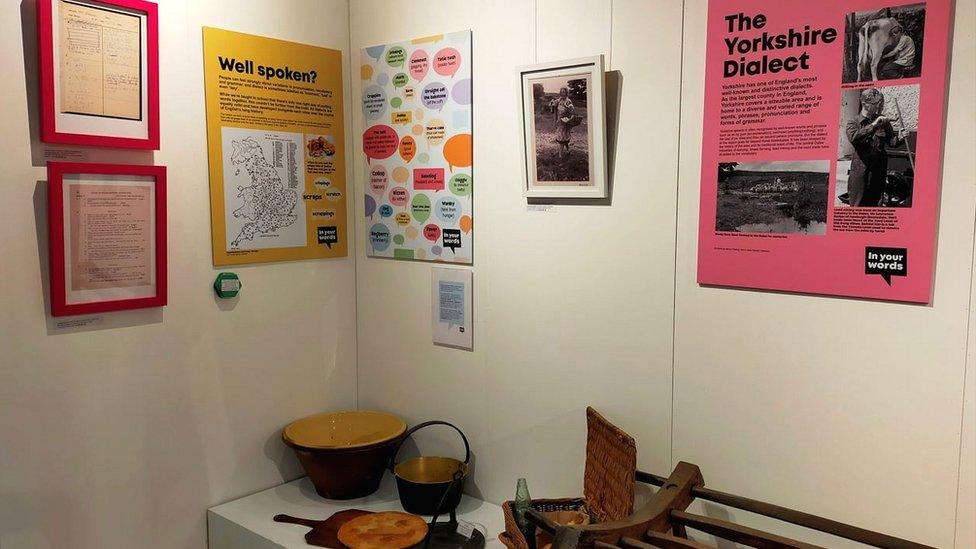
Rare interviews with local people alongside snippets from new oral histories were also part of the exhibition, officials said
Helen Guy from the Keld Resource Centre in Upper Swaledale said sharing dialect with visitors had become an important part of her work.
"I take people for walks and I'd say, 'That's a hog house' and they are like 'Oh, pigs?' and I'm like 'No, sheep' - and they are like, 'What?'
"People just think it's fascinating that up here a ram is not just a tup it's a 'tupe' and a ewe is a 'yow', things like that."
Ms Guy who contributed to the exhibition said she remembered not being able to understand what her grandad said.
"You know he'd say, 'ahse ye bin in to't top pasture?' And you think, 'What's he saying to me?'
"And he'd say 'Wat beeasts are up there?' I'm like, 'You what?'"
The exhibition is part of the Dialect and Heritage Project, a National Lottery Heritage Fund-supported initiative based at the University of Leeds.
The project has also seen the Leeds Archive of Vernacular Culture open to the public as well as the recording of dialects and memories from present-day communities.

Follow BBC Yorkshire on Facebook, external, Twitter, external and Instagram, external. Send your story ideas to yorkslincs.news@bbc.co.uk, external.
Related topics
- Published8 July 2022
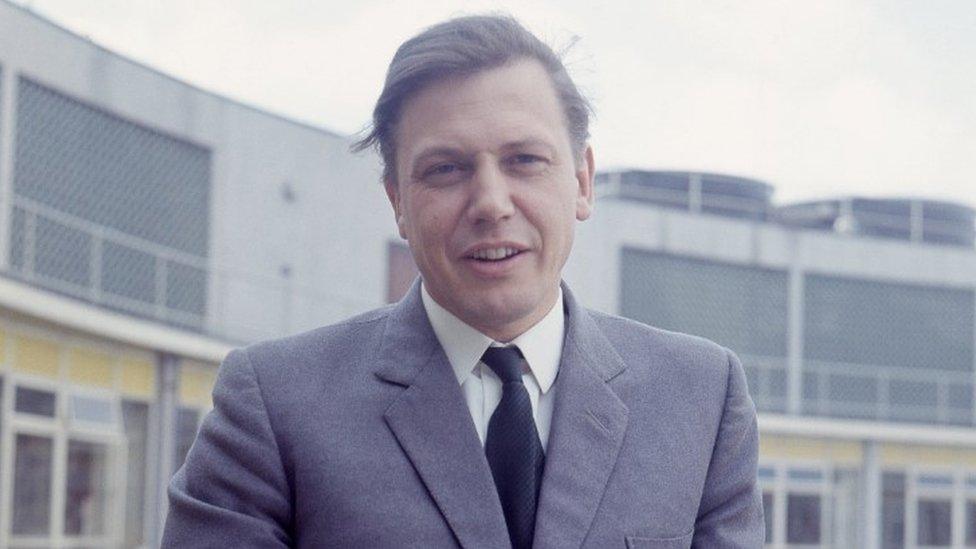
- Published21 April 2020
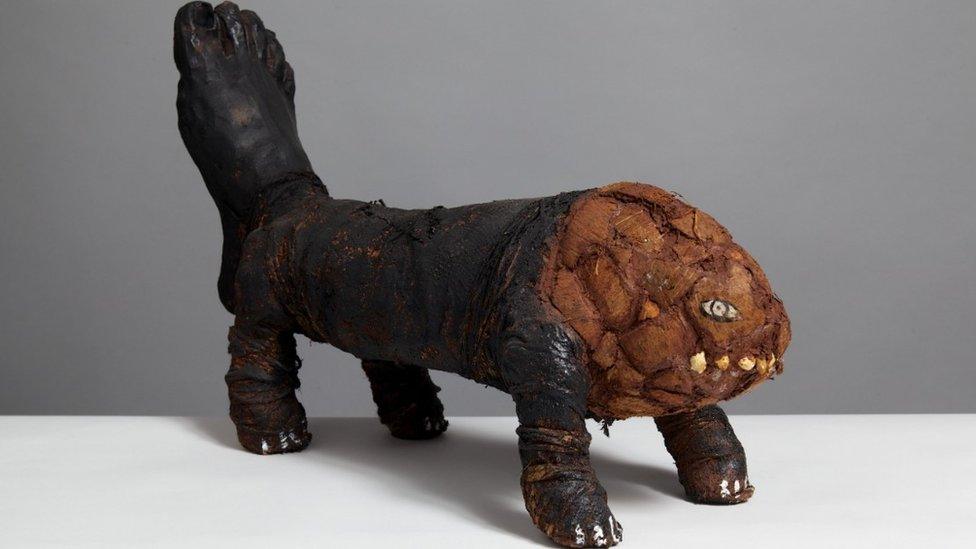
- Published13 October 2021
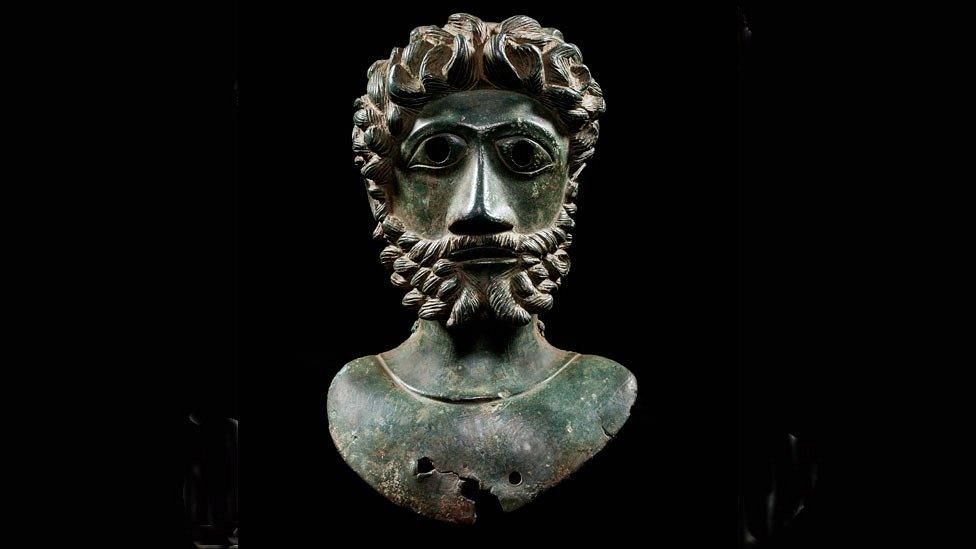
- Published17 January 2019
